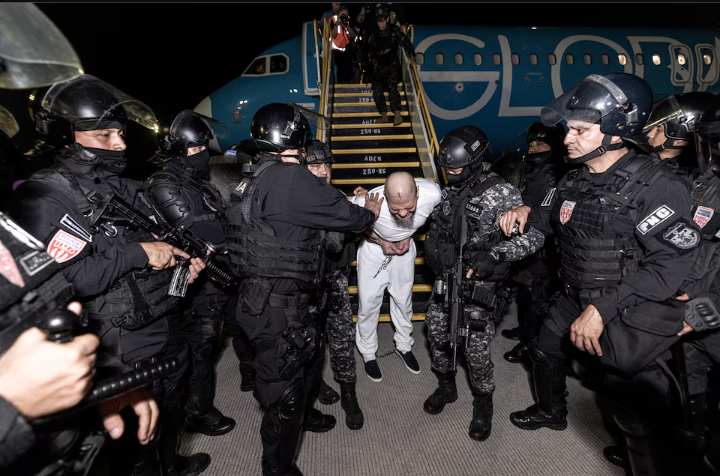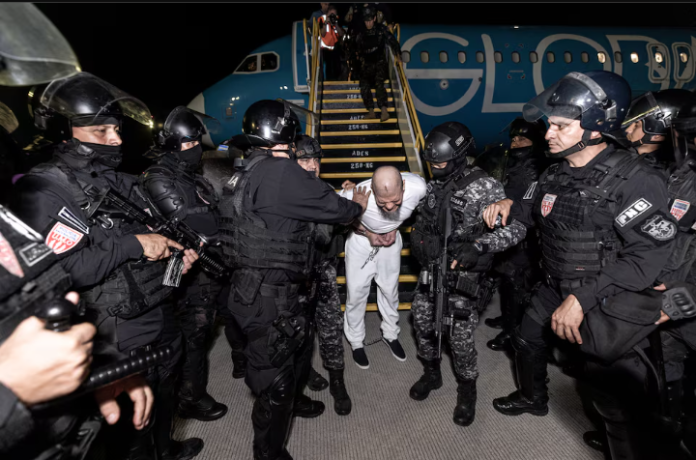More than 200 alleged members of the Venezuelan criminal gang Tren de Aragua have been deported from the United States and sent to El Salvador, where they were immediately placed in a high-security prison. The controversial move, authorized under an old U.S. law, has drawn legal challenges and international criticism.
A Sudden Mass Deportation
On Saturday, U.S. President Donald Trump invoked the 1798 Alien Enemies Act to rapidly deport suspected members of Tren de Aragua, a gang accused of kidnapping, extortion, and contract killings. The deportees were flown to El Salvador, where authorities transferred them to the Terrorism Confinement Center—a massive prison capable of housing up to 40,000 inmates.
Salvadoran President Nayib Bukele confirmed on social media that 238 individuals arrived on Sunday and will remain in custody for at least a year, with the possibility of an extension. A video released by the Salvadoran government shows shackled men being escorted from a plane, having their heads shaved, and being placed in a crowded cell.
Legal Hurdles and Human Rights Concerns
However, the legality of these deportations is in question. A federal judge in Washington, D.C., had issued an emergency order blocking the use of the Alien Enemies Act just hours before the flights departed. Judge James Boasberg ruled that the law applies only to acts of war committed by another country, raising doubts about whether it could be used against suspected gang members.
The American Civil Liberties Union (ACLU), which filed the lawsuit, has demanded that the U.S. government confirm no deportations occurred in violation of the court order. ACLU attorney Lee Gelernt urged authorities to work with El Salvador to return any wrongly deported individuals.
El Salvador’s Role in the Crackdown
Reports suggest the U.S. has agreed to pay El Salvador $6 million to hold the deported individuals for at least a year. This deal is part of a broader effort by the Trump administration to remove undocumented immigrants through alternative legal pathways.
Additionally, the U.S. has deported 23 members of the Salvadoran gang MS-13 to El Salvador, reinforcing its tough stance on organized crime.
Global Reactions and Political Ramifications

Venezuelan President Nicolás Maduro’s government has condemned the deportations, calling them a violation of human rights. Critics argue that the application of the Alien Enemies Act is an overreach, with echoes of its controversial use during World War II to justify internment camps.
Meanwhile, Trump’s administration has filed an appeal against the court’s ruling, signaling an ongoing legal battle over immigration enforcement.
As the situation unfolds, it raises critical questions about the limits of executive power, international cooperation on crime, and the rights of deported individuals.
Conclusion
The mass deportation of alleged gang members has sparked intense debate, with legal, political, and human rights implications. Whether the U.S. government will be forced to reverse the deportations remains uncertain, but this case is likely to set a precedent for future immigration policies.



